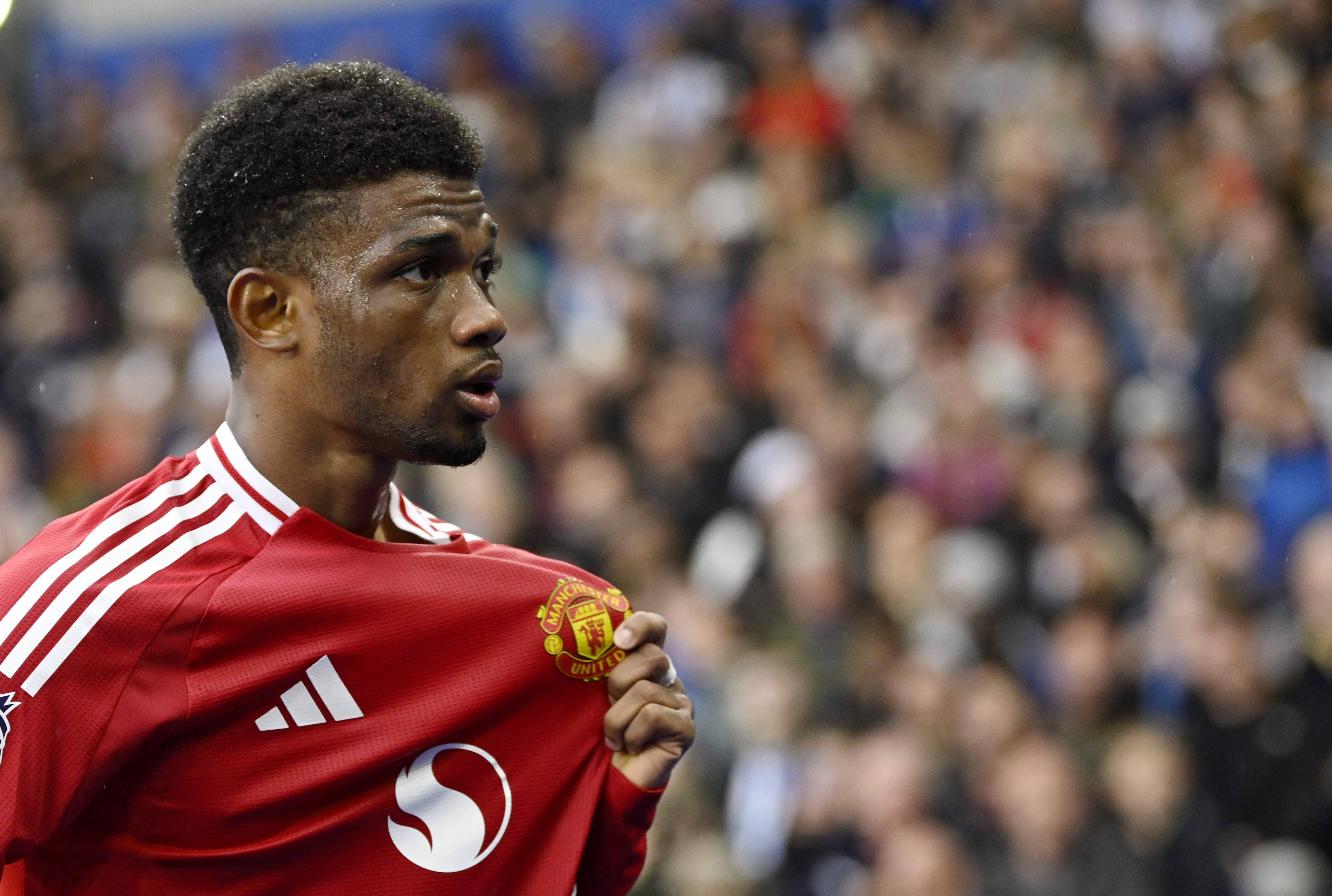Manchester United forward Amad Diallo has been forced to withdraw from the Ivory Coast national team squad just days before crucial Africa Cup of Nations (AFCON) qualifiers. The 22-year-old talent is set to return to England for medical assessment, dealing a blow to both his national team ambitions and potentially his club’s upcoming fixtures.
Amad, who had been expected to play a pivotal role in Ivory Coast’s double-header against Sierra Leone, complained of illness while in the national team camp. The first match of this crucial AFCON qualifier was scheduled for Friday, October 11, with the return leg following quickly on Tuesday.
It’s unfortunate timing,” said Ivory Coast team doctor Dr. Kouassi Koffi. “Amad showed great promise in our recent matches, and we were looking forward to his contributions in these qualifiers. However, the health of our players always comes first.
Amad’s withdrawal adds to a concerning trend for Manchester United, as he becomes the fourth player from the club to pull out of international duty in recent days. The Red Devils are already grappling with the absences of Noussair Mazraoui, Alejandro Garnacho, and Kobbie Mainoo, all sidelined due to various fitness concerns.
United’s physiotherapist, Sarah Thompson, commented on the situation: “We’re closely monitoring all our players, both those at the club and on international duty. It’s a challenging period with the intense schedule, but our priority is ensuring the long-term fitness of the squad.”
Amad’s absence will be keenly felt by the Ivory Coast national team. The young forward had made significant contributions in recent victories against Zambia and Chad during the September international window. His creative flair and goal-scoring ability had become crucial components of manager Emerse Fae’s tactical setup.
Losing Amad is a setback, no doubt,” Fae admitted in a press conference. “But we have depth in our squad, and this presents an opportunity for other players to step up. Our focus remains on securing qualification for AFCON.”
Despite this setback, Ivory Coast currently leads Group F of the qualifiers with six points from two matches, putting them in a strong position to advance.
Amad’s importance to both club and country has been underscored by his performances this season. In six Premier League appearances for Manchester United, he has already contributed a goal and an assist, providing much-needed creativity to a team that has often struggled for attacking fluency.
United’s attacking coach, Emma Roberts, praised Amad’s development: “We’ve seen tremendous growth in Amad’s game this season. His ability to create chances and his improved decision-making have been real assets to the team.”
As Amad prepares to return to Carrington, Manchester United’s state-of-the-art training complex, the focus will be on a swift and thorough recovery. The club’s medical team will conduct further tests to determine the nature and severity of his illness.
Dr. James Harrison, a sports medicine specialist not affiliated with Manchester United, offered his perspective: “In these situations, it’s crucial to identify the underlying cause quickly. With proper care and rest, most illness-related withdrawals see players return to action within a week or two, barring any complications.”
The timing of Amad’s illness could have significant implications for both Manchester United and the Ivory Coast national team. United face a Premier League clash against Brentford on October 19, leaving a tight window for Amad to regain full fitness.
Meanwhile, Ivory Coast will need to adjust their strategy for the upcoming qualifiers. Football analyst Marie Dubois noted, “Fae might need to reshuffle his attacking lineup. We could see a more traditional center-forward deployed, or perhaps a tactical shift to compensate for Amad’s absence.”
Amad’s situation highlights the challenges faced by modern footballers, particularly those representing both club and country. The packed calendar, with domestic leagues, European competitions, and international fixtures, puts immense physical and mental strain on players.
Former Manchester United player and pundit Gary Neville weighed in on the issue: “It’s a grueling schedule, and we’re seeing the effects. Clubs and national teams need to work together to manage player workloads better. Otherwise, we’ll keep seeing situations like this.”
As Amad returns to England, all eyes will be on his recovery process. Manchester United fans will be hoping for a swift return, especially given the team’s recent struggles and growing injury list.
The club has announced that they will provide updates on Amad’s condition in the coming days. In the meantime, manager Erik ten Hag will need to consider his options for the upcoming fixture against Brentford, potentially offering opportunities to other squad members to step up in Amad’s absence.
For Amad himself, the focus will be on regaining full health and fitness. At just 22 years old, he has a bright future ahead, both for club and country. This setback, while disappointing, is unlikely to derail what promises to be an exciting career for the talented forward.
As the football world continues to navigate the challenges of an intense schedule, stories like Amad’s serve as a reminder of the delicate balance between performance and player welfare. It’s a balance that clubs, national teams, and governing bodies must continually strive to maintain for the good of the game and its stars.



